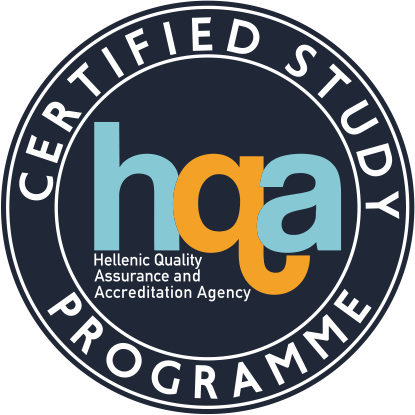Communication and Learning in the Classroom
Undergraduate level | 5th semester | Compulsory Unit | ΓΕ4301
Credit Units ECTS: 5
Teaching Hours (Weekly): 3
Course Type: Background, Scientific Area, Skill Development
Prequisites: --
Teaching and Examination Language: Greek
For Erasmus students study course and exams are offered in English.

Course Material
This module provides students with a comprehensive understanding of the theory, research and practice in the field of classroom learning and communication. The theory explored within course sessions is examined in the context of educational practice. The module introduces basic concepts and theories concerning the development of communication in children, the relationship between language and communication, the cognitive prerequisites for the development of communication skills, the psychological perspective of communication, Theory of Mind and social understanding, the referential communication paradigm, speaking and listening skills in the school context, the purpose in communication, message modalities, comprehension monitoring and communication, metacognition and communication, the role of school and family in children’s learning, thinking and communication, peer relationships, teacher-pupil relationship and communication difficulties of learning disabled pupils (i.e. on the autism spectrum or with hearing impairment) and typically developing pupils.
Learning Outcomes
This module aims to contribute to the development of knowledge on issues concerning classroom learning and communication. On successful completion of this module students will be expected to be able to:
- demonstrate awareness and critical understanding of the principles of developmental theories focusing on communication during childhood and adolescence
- demonstrate awareness and knowledge of the role of social understanding and written language in children’s ability to communicate effectively
- demonstrate a detailed knowledge and understanding of the implications for communication development, functioning and the impact of communication difficulties on learning
- identify and retrieve information relevant to the cognitive, language and psychosocial factors involved in the development of communication in children and adolescents
- critically evaluate the contribution of verbal and non-verbal communication in the learning process
- evidence an ability to evaluate empirical findings regarding aspects of teacher-pupil-family communication
- demonstrate awareness of the wider environmental implications for children and adolescents who have language and communication difficulties
- develop critical thinking
- interact effectively with a group, contributing ideas, giving feedback and collaborating with others
- manage self-directed learning using recommended resources
General Skills
- Independent work.
- Team work
- Respecting the culture differences and individuality.
- Promoting reasoning and self-improvement.
- Adaptation in new conditions.
- Decision Making
- Social, work-related and ethical responsibility in matters related to gender equality.
- Promoting free, creative and deductive reasoning
Learning and Teaching Techniques - Evaluation
Teaching Methods: Face-to-face, use of educational videos, workshops in small groups, review of relevant literature.
Use of ICT: e-class, course web page
Course Organization:
| Activity | Semester Work Load |
|---|---|
| Lectures | 26 |
| Published Literature Search and Use | 22 |
| Assignments | 20 |
| Workshops in small groups | 13 |
| Self-directed study (independent) | 40 |
| Contact hours | 4 |
| Total | 125 |
Assessment Methods:
The course grade is based on a final written exam including multiple choice questions, and brief open ended questions which require critical reasoning. Extra credit is optionally given upon completion of assignments which involve both written and oral presentation. Erasmus students are assessed via a brief written literature review on a topic of their choice from a list of recommended topics. The method and criteria upon which students are assessed at the end of the semester are clearly stated and explained in the e-class of the course, in which all students have access.
Suggested Bibliography
Core Reading
- Maridaki-Kassotaki, K. (1999). Modern views on the child’s mind. Athens: Grigoris. (in Greek)
- Donaldson, M. (1991). Children’s mind. Athens: Gutenberg. (in Greek)
- Mitchell, P. (1996). Acquiring a conception of mind. Athens: Tipothito. (in Greek)
- Siegler, R. S. (2002). Children’s thinking. Athens: Gutenberg. (in Greek)
Core Reading for ERASMUS students
- Bartsch, K. & Wellman, H. M. (1995). Children talk about the mind. NY: Oxford University Press.
- Wood, D. (1998). How children think and learn: the social contexts of cognitive development. Oxford: Blackwell.
- Mitchell, P. (1996). Acquiring a conception of mind. UK: Psychology Press.
- Siegler, R. S. (1998). Children’s thinking. NJ: Prentice-Hall.
Relevant scientific journals
- Psychology
- Preschool & Primary Education
- Hellenic Journal of Research in Education
- Dialogoi! Theory & Praxis in Education
- Review of Counselling & Guidance



